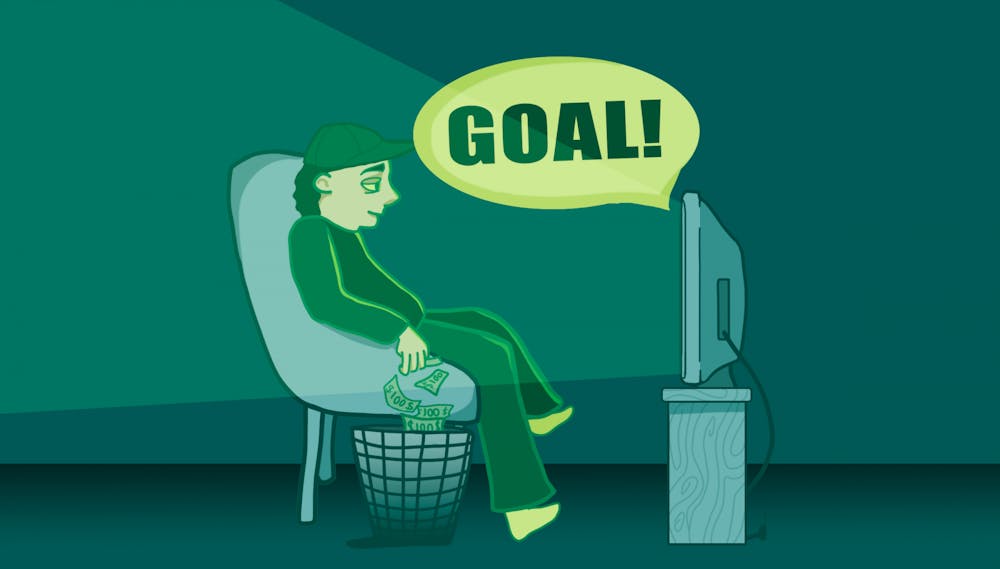In 2019, Indiana became the 13th state to legalize sports gambling. Since then, the sports gambling industry has generated over 4 billion dollars in revenue.
Indiana’s $4 billion sports gambling industry is breathtaking. The unspoken issue of gambling addiction affecting young adults in particular raises concerning implications.
An Indiana Problem Gambling Awareness Program at IU study found less than 5% of Indiana residents have a gambling problem. However, Mary Lay, researcher at the Indiana Problem Gambling Awareness Program, said that number can be misleading.
“One of the things about problem gambling disorder is that there's no drug test. There are no tests,” Lay said. “We really have to estimate those numbers. You don't have drunk driving crashes to look at and you don't have arrests to look at most of the time.”
She said 5% of Indiana’s population is still 180,000 to 200,000 people with a problem.
The National Council on Problem Gambling performed another study that showed the risk of gambling addiction, particularly sports gambling, is higher for young adults.
“College students are more likely to participate in sports betting and in lotteries,” Lay said.
In an interview with the New York Times, Dr. Timothy Fong, director of the Gambling Studies Program at UCLA, said young adults are more likely to develop a gambling problem. The convenience of online gambling, prior family history of gambling and introduction to gambling at a young age can contribute to one’s likelihood of developing a gambling addiction, he said.
With the growing prevalence of the sports gambling industry, it is easy to talk about money. But, the even more important mental health issues surrounding gambling addiction are often forgotten.
Gambling addiction is not only widely ignored but also disbelieved by society.
“Money is a taboo thing that we don't talk about in the United States,” Lay said. “You’re not supposed to talk about your money, it's very hidden. And when you see someone losing their money, you must think, ‘well, they're just being dumb,’ that they have a choice and they can just stop.”
Gambling addiction symptoms can be very similar to others, such as an alcohol or drug addiction, Lay said.
For college students, some symptoms include missing classes, missing work, borrowing money and hiding the amount of money spent.
The issue at hand comes down to a lack of societal awareness. Those who are at risk are not aware they can seek help, she said, but there’s nothing wrong in doing that.
“The lack of awareness is that you can have a problem and that you can seek help for that problem,” Lay said. “It’s just like alcohol or anything else.”
The industry is undoubtedly growing. According to Indiana Gaming Commission’s annual report, the amount of money bet with online sportsbooks has risen 272.5% since being legalized in 2019.
Gambling is intertwined with daily life so much it seems standard. The gambling industry isn’t going away. However, the stigma around gambling addiction should be eradicated, and awareness should be raised instead.
If you or someone you know is struggling with a gambling addiction, they can visit https://iuhealth.org/find-medical-services/addiction-treatment or call 1-800-GAMBLER.
Jacob Spudich (he/him) is a freshman studying journalism. He is a DJ for the WIUX student radio station, a member of Timmy Global Health and a huge Detroit Tigers fan.






